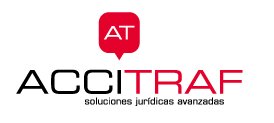Best Acquisition / Leveraged Finance Lawyers in Salamanca
Share your needs with us, get contacted by law firms.
Free. Takes 2 min.
List of the best lawyers in Salamanca, Spain
About Acquisition / Leveraged Finance Law in Salamanca, Spain
Acquisition and leveraged finance law refers to the legal framework and services involved in financing the purchase of businesses or assets, often through debt instruments. In Salamanca, Spain, these transactions commonly occur when a company, private equity group, or investor acquires another business using borrowed funds. The borrowed capital is usually secured against the assets of the target company, its cash flows, or a combination of both. Salamanca, as part of the Castile and León region, operates under Spanish national legislation while also adhering to applicable European Union regulations that oversee financial transactions and banking practices.
Why You May Need a Lawyer
Acquisition and leveraged finance transactions are inherently complex, involving significant legal and financial implications. Here are some common reasons individuals and businesses in Salamanca may need a lawyer specializing in this area:
- Structuring acquisition loans or leveraged buyouts
- Negotiating terms with banks and lenders
- Ensuring compliance with Spanish and EU regulations
- Conducting due diligence on the target company
- Drafting and reviewing loan agreements and security documents
- Managing risks associated with financing structures
- Navigating tax considerations linked to acquisition finance
Local Laws Overview
Several laws and regulatory bodies are relevant to acquisition and leveraged finance transactions in Salamanca:
- Spanish Civil Code and Commercial Code: These codes govern contractual obligations, commercial transactions, and security arrangements.
- Bank of Spain Regulations: Set forth lending standards, borrower solvency requirements, and banking protocols.
- Company Law: The Spanish Companies Act regulates company formation, corporate governance, and mergers or acquisitions.
- Insolvency Law: Protects both lenders and borrowers in cases of financial distress or bankruptcy.
- EU Directives: Influence banking activities, anti-money laundering (AML), and capital requirements.
- Tax Law: Affects the structuring of transactions and the deductibility of interest on financed acquisitions.
Local lawyers in Salamanca combine their knowledge of national and European law with practical experience of the regional business landscape, helping clients navigate not only the letter of the law but also local administrative processes and customary practices.
Frequently Asked Questions
What is the difference between acquisition finance and leveraged finance?
Acquisition finance refers to funding provided specifically for the purchase of companies or assets. Leveraged finance involves the use of significant amounts of debt, often beyond normal lending parameters, with the expectation that the acquired entity's cash flows will repay the loan. Both terms are closely linked but leveraged finance implies the use of high leverage, typically for higher risk or larger scale acquisitions.
Who are the main parties involved in a leveraged buyout in Salamanca?
The main parties typically include the buyer (such as a private equity firm or corporate acquirer), the seller, lenders (banks or credit institutions providing the loan), legal advisors, and sometimes regulatory authorities if approvals are required.
Are acquisition finance agreements standard or negotiable?
While some provisions are standard, most key terms are highly negotiable. This includes interest rates, covenants, repayment terms, and security packages. Legal counsel plays a crucial role in protecting your interests during negotiations.
What types of security are usually required by lenders in acquisition finance in Spain?
Common forms of security include pledges over shares, mortgages on property, assignments of receivables, and guarantees. The exact nature will depend on the lender's policy, the risk profile, and the specific transaction.
Is due diligence mandatory before a transaction?
Due diligence is not legally mandatory but is highly recommended. It helps to uncover potential liabilities, compliance issues, or hidden risks within the target company, ensuring that the acquisition is based on accurate and complete information.
What regulations protect borrowers in Salamanca?
Borrowers are protected by Spanish contract law, consumer protection regulations (if applicable), and regulations enforced by the Bank of Spain regarding fair lending and transparency. These laws aim to ensure clear communication of terms and prevent abusive lending practices.
How are cross-border acquisition financings handled?
Cross-border transactions require compliance with both Spanish law and the laws of the other jurisdiction involved. Currency regulations, foreign investment rules, and EU directives can all play a role. Legal experts guide clients through these additional layers of complexity.
What happens if the borrower cannot repay the loan?
Failure to meet repayment obligations can result in the lender enforcing security, initiating insolvency proceedings, or renegotiating terms. Spanish insolvency law regulates the process for protecting creditor and debtor rights during restructuring or liquidation.
Are there tax considerations in acquisition financing?
Yes, tax treatment of interest payments, stamp duties on loan documentation, and the structuring of the acquisition can have significant tax implications. Consultation with legal and tax professionals is essential to optimize tax efficiency.
How long does the acquisition finance process typically take?
Timeframes vary based on transaction complexity and due diligence required, but a typical acquisition finance deal in Salamanca may take anywhere from several weeks to a few months from preliminary negotiations to final funding.
Additional Resources
Individuals or businesses seeking further information can consult several official resources and associations:
- Bank of Spain (Banco de España) - Supervises banking and credit institutions
- Spanish Securities Market Commission (CNMV) - Regulates securities and markets
- Spanish Bar Association (Colegio de Abogados) in Salamanca - Referrals to accredited lawyers
- Chamber of Commerce of Salamanca - Support for local businesses and investors
- Instituto de Crédito Oficial (ICO) - Public bank supporting business financing
Next Steps
If you are considering an acquisition or leveraged finance transaction in Salamanca, Spain, your best course of action is as follows:
- Clearly define your goals and financial capabilities.
- Gather all relevant documents related to your target company or intended financing.
- Consult a lawyer specializing in acquisition and leveraged finance in Salamanca to assess legal risks and structure the deal.
- Engage with financial advisors to understand lending options and requirements.
- Work closely with your legal and financial teams throughout negotiations, documentation, and closing to ensure compliance and safeguard your interests.
Taking these steps will help you navigate the acquisition finance landscape confidently and minimize potential legal or financial pitfalls.
Lawzana helps you find the best lawyers and law firms in Salamanca through a curated and pre-screened list of qualified legal professionals. Our platform offers rankings and detailed profiles of attorneys and law firms, allowing you to compare based on practice areas, including Acquisition / Leveraged Finance, experience, and client feedback.
Each profile includes a description of the firm's areas of practice, client reviews, team members and partners, year of establishment, spoken languages, office locations, contact information, social media presence, and any published articles or resources. Most firms on our platform speak English and are experienced in both local and international legal matters.
Get a quote from top-rated law firms in Salamanca, Spain — quickly, securely, and without unnecessary hassle.
Disclaimer:
The information provided on this page is for general informational purposes only and does not constitute legal advice. While we strive to ensure the accuracy and relevance of the content, legal information may change over time, and interpretations of the law can vary. You should always consult with a qualified legal professional for advice specific to your situation.
We disclaim all liability for actions taken or not taken based on the content of this page. If you believe any information is incorrect or outdated, please contact us, and we will review and update it where appropriate.











